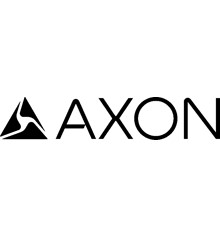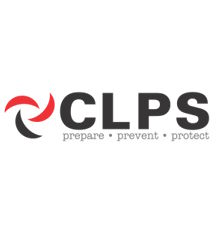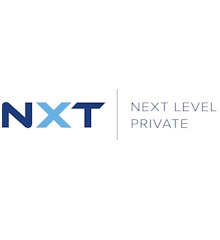- Home
- About
- Members
- Publications
- Chief's Chronicle
- Legislative Center
- Press Releases
- Sheriffs/Chiefs Budget Letter
- Press Release - Memorandum of Opposition
- Open Letter to the Governor June 11th 2020
- New York State Association of Chiefs of Police Statement - the Resignation of Rochester Police Chief La'Ron Singletary
- NYSACOP Letter Addressing Thanksgiving Day Gatherings Enforcement
- A Letter from NYSACOP - Commentary on Law Enforcement Involvement on Gathering Limits during Thanksgiving
- Statement on Ithaca Police Reform Panel Member Richard Rivera
- Mid-Hudson Chiefs of Police Association Press Release on Marijuana Legalization Meeting
- NYSACOP Response to Anti-Defamation League Statement
- Content and Advertising Deadlines for NYSACOP Publications
- Traffic
- Partnership Program
 2025 Police Executive TrainingMarch 24-28, 2025 Training is sponsored by DCJS at no cost to the participant. Lodging provided for the first 30 registrants at on base hotel. This popular course is currently offered once a year and capped at 60 participants. Link to register; https://nysacop.memberclicks.net/executivetraining2025 Presented by the New York State Association of Chiefs of Police in cooperation with the New York State Division of Criminal Justice Services (DCJS) and contributions from Hilbert College (The Institute for Law & Justice). A five (5) day (32 hour) training conference held at the Niagara Falls Air Force Base in Niagara County, N.Y. This course is intended for new police chiefs or command staff who aspire to be police chiefs. The course is designed to be a “police chiefs 101” course, providing the student with the basic skills necessary to be a police chief.
Training Presentations Evidence Based Policing Overview: Evidence-based policing (EBP) simply says that police practices should be based on scientific evidence about what works best. EBP educates law enforcement in well-researched and verified strategies that work to address a host of issues specific to law enforcement agencies. Agencies that use EBP make empirically informed decisions that transcend the entire organizational structure, including major functions like patrol, investigations, and policy development. EBP encourages law enforcement to use problem analysis to improve crime control, community relations, and internal management at all levels. This presentation will provide an overview of these principles by focusing on the “how” and “why” behind crime both geographically and temporally, as well as which environmental and situational factors that create opportunities for crime and how to best mitigate those factors. Additionally, the presentation will provide an overview of The Gun Involved Violence Elimination (GIVE) Initiative at the Division of Criminal Justice Services that provides state funding and technical assistance to New York State law enforcement agencies to build their capacity to implement, measure and sustain evidence-based violence prevention strategies.
Leadership and Risk Management: The session is designed and delivered to provide the tools and techniques to assist the aspiring police leaders in building a culture of leadership throughout a police organization. The instructor will use proven techniques amplified with personal experiences as part of the training. Basic ethical values of virtue, truth and justice will be introduced, with participants exploring how these values are necessary to develop and maintain a culture of leadership. Additional leadership topics will be covered based on instructor availability.
Building a Critical Incident Policy: This presentation will discuss the steps of a complete and comprehensive investigation of an officer involved critical incident. We will discuss the initial response of the first line supervisor, best practices in dealing with the involved officer, the investigation, and policy recommendations for administrators. Discussion to include the NYS Attorney General's historical response and participation in these types of investigations.
Media Relations: The ability to effectively communicate with the media in the current social and political environment has become one of the most important aspects of the job of a police leader. This course is an introduction to media relations as it pertains to social media as well as television media. Together we will explore the “do’s and don'ts” for police executives irrespective if they have a dedicated Public Information Officer (PIO) or if they handle media relations themselves. Part of the course will include the examination of real-world examples in media relations and lessons learned that will assist police executives to be successful in this very important part of their job.
Human Resources for Police Chiefs: This course will cover various areas of Human Resources that will assist chiefs in developing a proper organizational culture and managing internal risk. Federal and state legal requirements will be reviewed, along with policy and practice tips to follow to ensure the rights of your members are protected. The importance of the integration of proper discipline into your day-to-day operations as an essential element of managing the complex requirements of these areas. The course will include an overview of:
Freedom of Information Requests and the Impact of Doxing in Law Enforcement: There has been a significant increase in Freedom of Information requests throughout government. As such it is imperative that a police chief have the most recent information on the rules and procedures for fulfilling a Freedom of Information request. This presentation will outline how to receive a Freedom of Information request, the rules governing what information can be released, what specific circumstances must be kept confidential, and the social/environmental factors that may be affecting this increase in requests. This presentation will also review the recent phenomenon of individuals and groups engaged in Doxing law enforcement. The presenter will provide a historical overview of Doxing, review recent cases, generally identify various individuals/groups that have a history of Doxing law enforcement, and offer possible remedies or strategies to address Doxing.
Risk Management in Law Enforcement: This course will build upon the foundation created by the course on human resources to cover all aspects of law enforcement organizational management. Root cause analysis and the Five Pillars of Organizational management will lay the foundation. The importance of integrating the duty to intercede in an organization culture will be examined along with the broader constitutional requirements that must be understood and adhered to by all leaders and officers. The course will explain the correlation between respecting the civil rights of members and citizen’s integrating with an organizational culture that keeps its members as safe as possible and provides them with the ability to thrive and develop. An understanding of how to perform a root cause analysis will assist the leader in developing a learning organization that is willing to accept the need for continuous improvement.
Career Survival – Transitioning to the Position of Chief of Police: This presentation is intended for senior ranking law enforcement professionals who aspire to ascend to the position of Chief of Police, or who have been recently promoted to the head of their agency. It is designed to enlighten the participants as to what they should consider both professionally and personally prior to seeking and accepting an appointment as a law enforcement CEO, what they can expect when stepping into that role, and how to navigate through a myriad of obstacles common to the position, giving them a better insight as to what the job actually entails.
Police Chief Employment Contracts: This presentation is centered on the advantages of a police chief preparing and executing an employment contract with their municipality. Discussion will include examining various factors to consider when preparing and presenting the contract, the protections and benefits of an employment contract versus a resolution passed by a political entity, and the various civil service protections available to a police chief. Examples of existing employment contracts will be presented along with case law that directly impacts police chief employment contracts.
Traffic Briefing: The traffic safety session will include information on the importance of traffic safety as a component of policing/public safety, an overview of crash/enforcement data and recent trends, positive impact of a comprehensive traffic program, equity/non-bias policing, GTSC grants and grant training and how NYSACOP can support agencies’ traffic safety efforts.
Officer Wellness from a Supervisory Perspective: An examination of the various dimensions of wellness. Provide information that will allow the supervisor to develop the knowledge and understanding needed to identify the symptoms that would indicate the need for support and/or intervention. Explain the importance of organizational communication to identify officer wellness issues. Discuss the need for an organizational policy/procedure to address officer wellness. Provide examples of policies and procedures currently in use by law enforcement.
Overview of New York State Crime Analysis Center Network: The New York State Department of Criminal Justice Service (DCJS) Crime Analysis Center (CAC) network consists of 10 individual crime analysis centers dedicated to assisting law enforcement in the investigation of crime and criminal activity. This overview will examine the services available through the crime analysis network and the benefits of affiliating and partnering with the CAC network. Case examples will be used to highlight the effectiveness of the CAC network.
What you do Matters – Leadership Lessons from the Holocaust Created with the U.S. Holocaust memorial Museum, this presentation examines policing from the legal cultural, propaganda and political framework of Nazi Germany from 1933 thru 1942. This highly interactive course takes attendees through the slippery slope leadership journey that eventually turned police guardians into individuals who intimidated, humiliated, deported, and eventually murdered innocent people. It explores how the shift happened over 9 years, how propaganda and influence affected decision-making and the importance of police officers remaining true to their oath and sacred duty.
Other Services/Presentations:
** Course descriptions and times may change based on presenter availability.
Link to register; https://nysacop.memberclicks.net/executivetraining2025 |
































